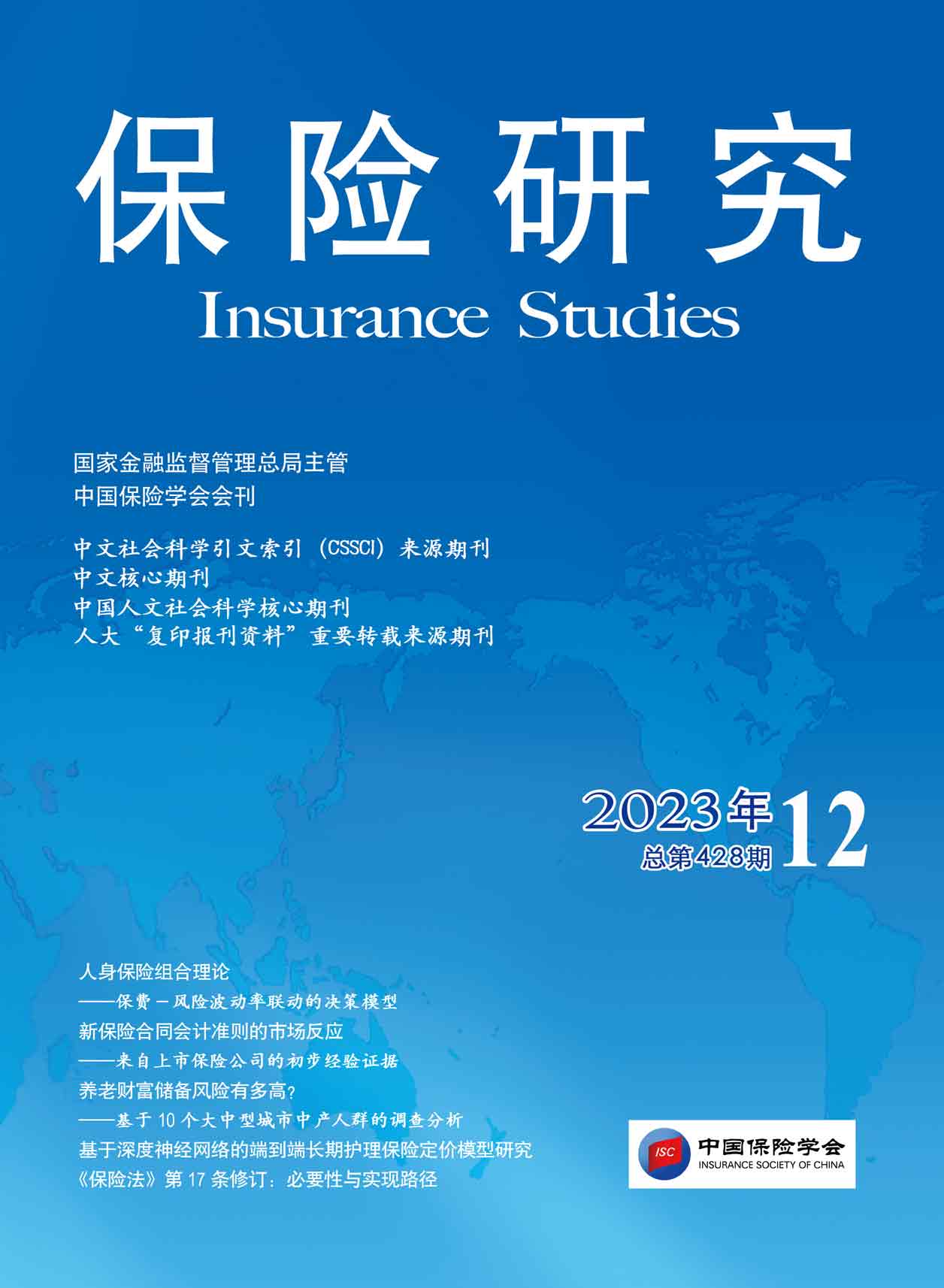
《保险研究》20231206-《基于深度神经网络的端到端长期护理保险定价模型研究》(仇春涓、刘守贤、 张楠)
[中图分类号]F842 [文献标识码]A [文章编号]1004-3306(2023)12-0071-11 DOI:10.13497/j.cnki.is.2023.12.006
资源价格:30积分
- 内容介绍
[摘 要]本文在大数据、科技赋能的背景下,提出基于深度神经网络的端到端长期护理保险定价模型。端到端模型可以将所有的步骤包含在一个深度神经网络模型内部,输入被保险人的个体特征,直接得到其未来不同护理状态的概率预测值。相比于经典定价模型,端到端模型具有放宽模型假设、减少定价模型的复杂程度、避免误差积累以及自动优化和智能化的优点。本文选取CHARLS 2011年、2013年、2015年和2018年数据进行实证研究,构建一个包含三层隐藏层,每层32个神经元的全连接神经网络模型,考虑样本不平衡性,调整模型参数,对比不同激活函数,得到预测个体护理状态的最优模型LTCmodel。基于LTCmodel,在合理的长期护理保险产品责任、保额增长率以及利率假设下,最终输出不同特征被保险人的年缴均衡保费,实现个性化和精准定价。
[关键词]长期护理保险;深度神经网络;LTCmodel;保险定价
[基金项目]本文受到上海市哲学社会科学规划课题一般课题(2023BJB002)的资助。
[作者简介]仇春涓,华东师范大学统计学院副教授,研究方向:健康保险、保险精算;刘守贤,华东师范大学统计学院硕士研究生;张楠(通讯作者),华东师范大学统计学院副教授,研究方向:量化金融。
End-to-end Long-term Care Insurance Pricing Model Based on Deep Neural Networks
QIU Chun-juan,LIU Shou-xian,ZHANG Nan
Abstract:Under the backdrop of big data and technological empowerment,this paper introduces an end-to-end long-term care insurance pricing model based on deep neural networks.The proposed model encompasses all the stages in a deep neural network,taking individual characteristics of the insured as input and providing direct probability predictions for their future care states.In comparison to classical pricing models,the end-to-end approach offers several advantages,such as relaxed model assumptions,reduced complexity,error avoidance,and automatic optimization and intelligence.Empirical research is conducted using CHARLS data from 2011,2013,2015,and 2018.A fully connected neural network model with three hidden layers,each containing 32 neurons,is constructed.Considering the sample imbalance,model parameters are adjusted,and various activation functions are compared to obtain the optimal model,the LTCmodel,for predicting individual nursing statuses.Utilizing the LTCmodel and reasonable assumptions for long-term care insurance product liability,insured amount growth rate,and interest rate,the annual premiums for individuals with different characteristics are determined,achieving personalized and accurate pricing.
Key words:long-term care insurance;deep neural network;LTCmodel;insurance pricing
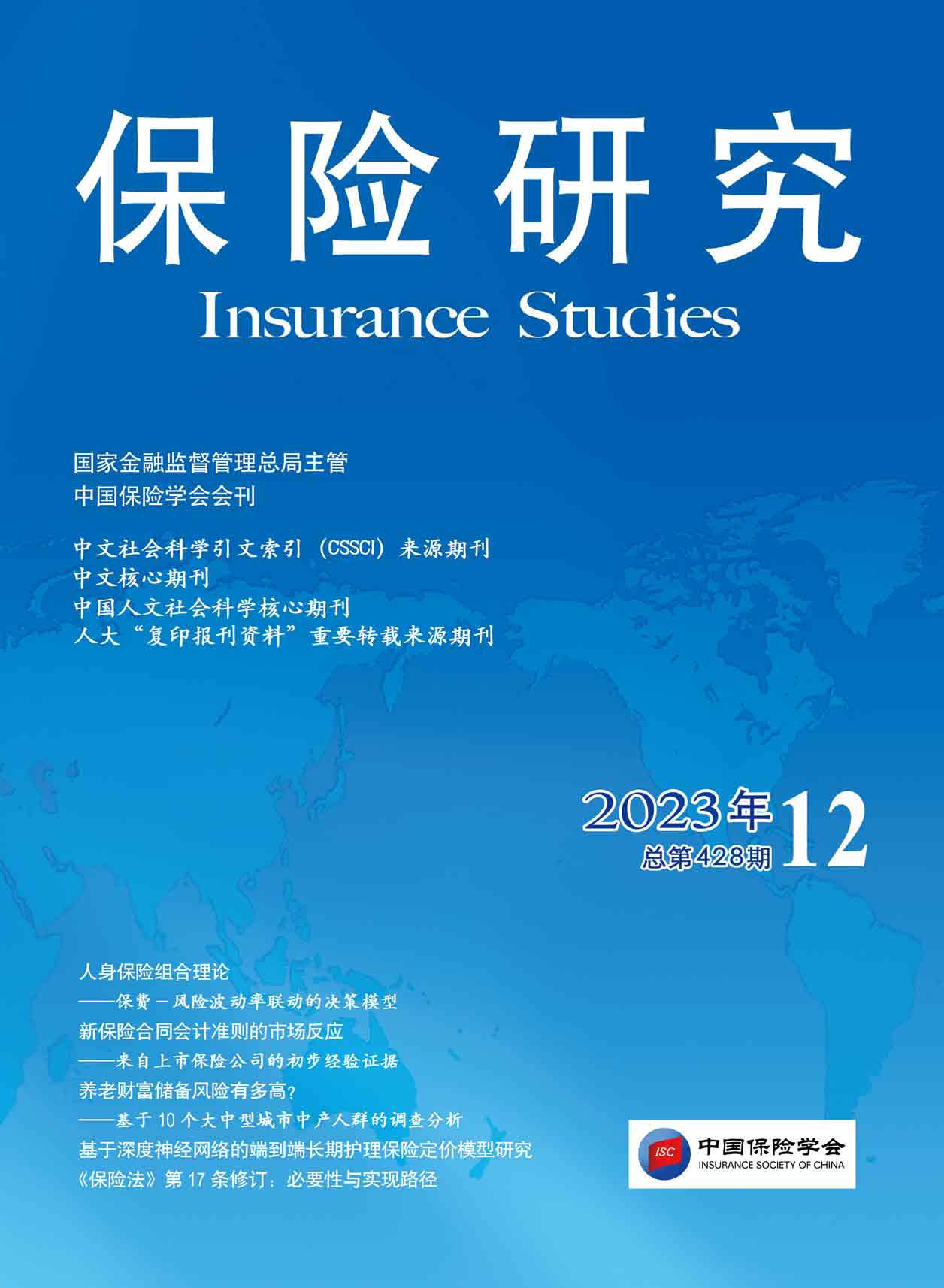
《保险研究》20231201-《人身保险组合理论——保费-风险波动率联动的决策模型》(张程、范雨文、曹铸、王洪彬)
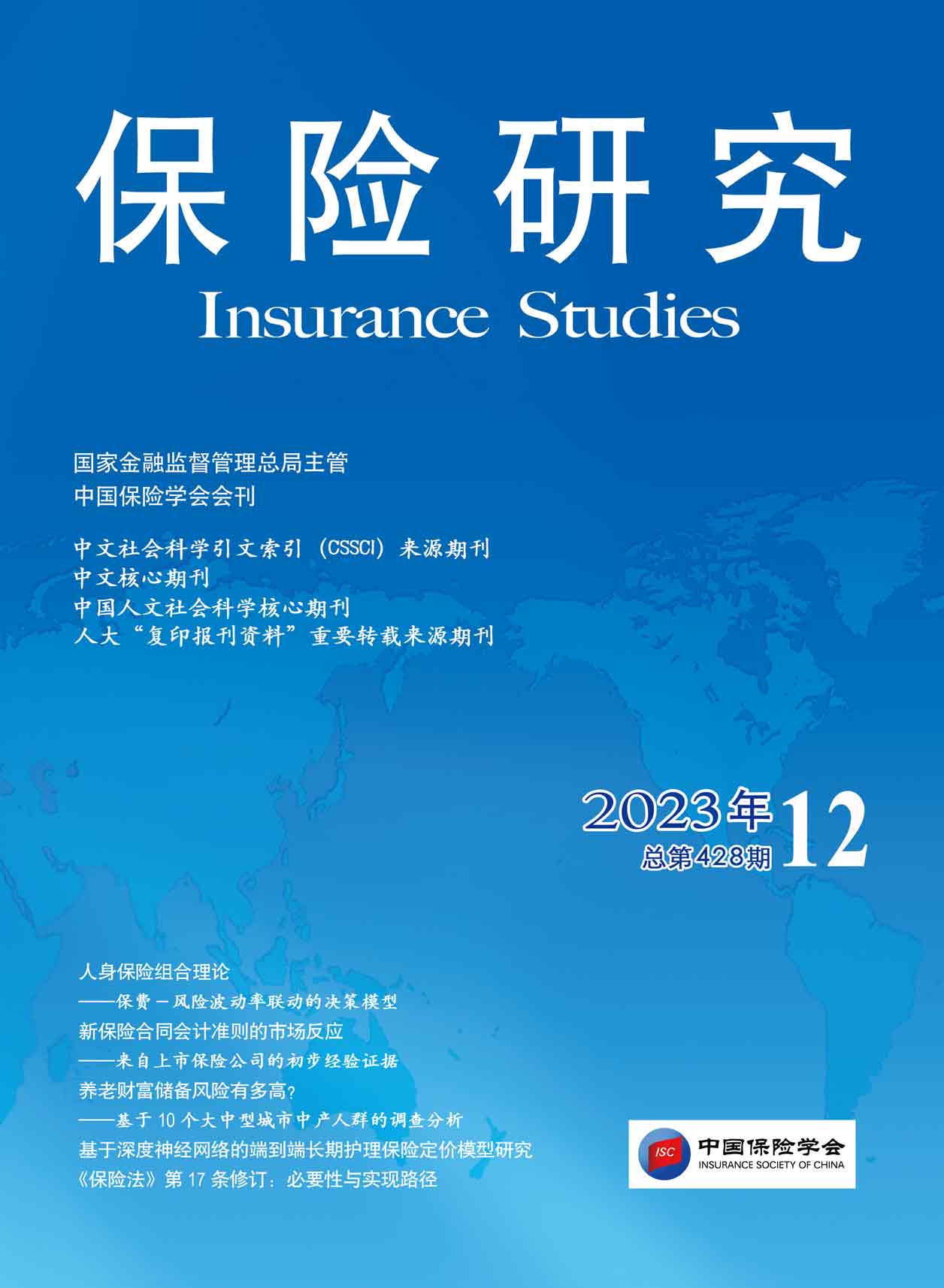
《保险研究》20231202-《新保险合同会计准则的市场反应——来自上市保险公司的初步经验证据》(彭雪梅、段伊雪、王佳)
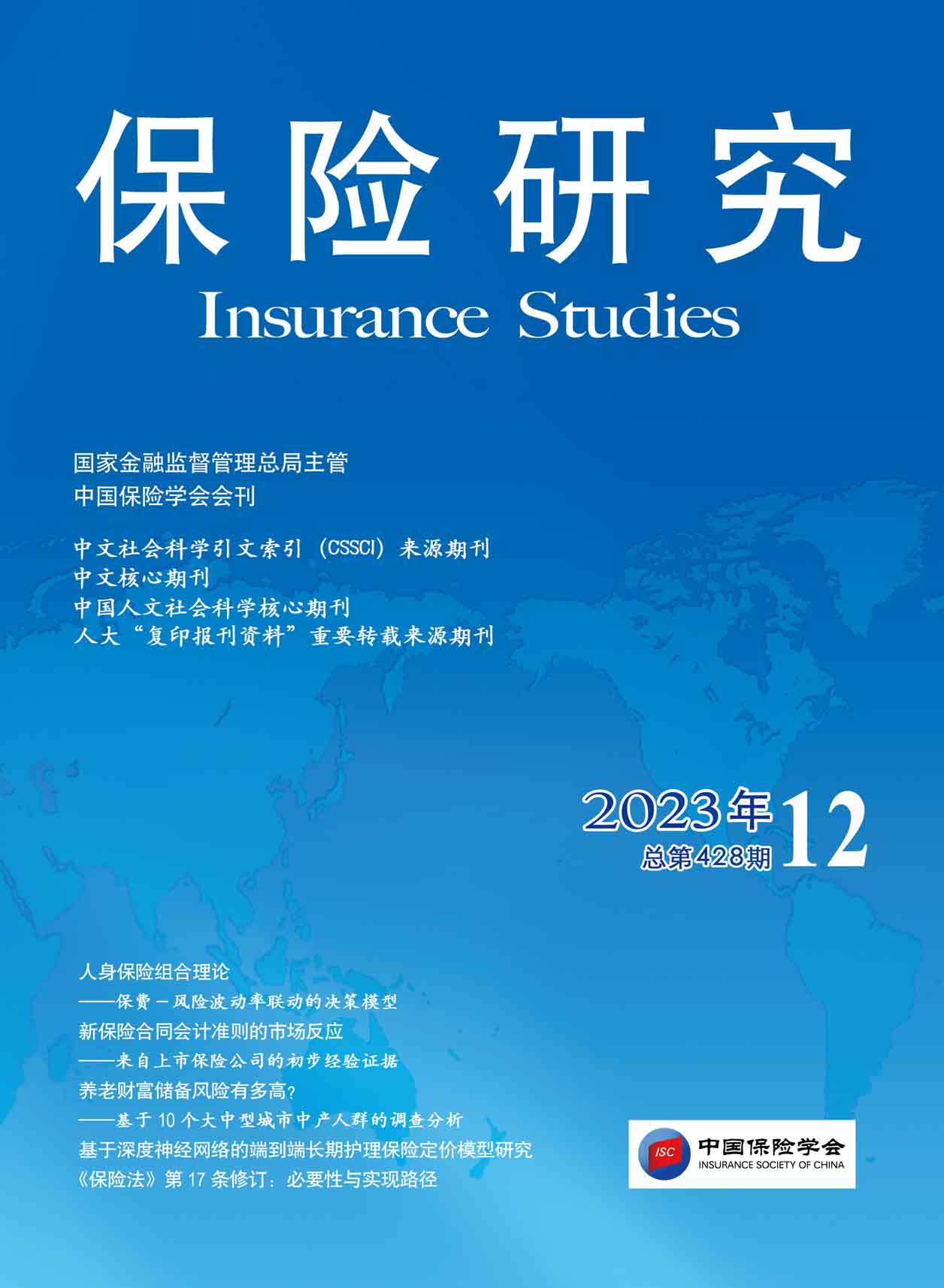
《保险研究》20231203-《套期保值效果与“保险+期货”赔付合理性——基于玉米和大豆试点项目的实证分析》(鞠荣华、顾巧静)
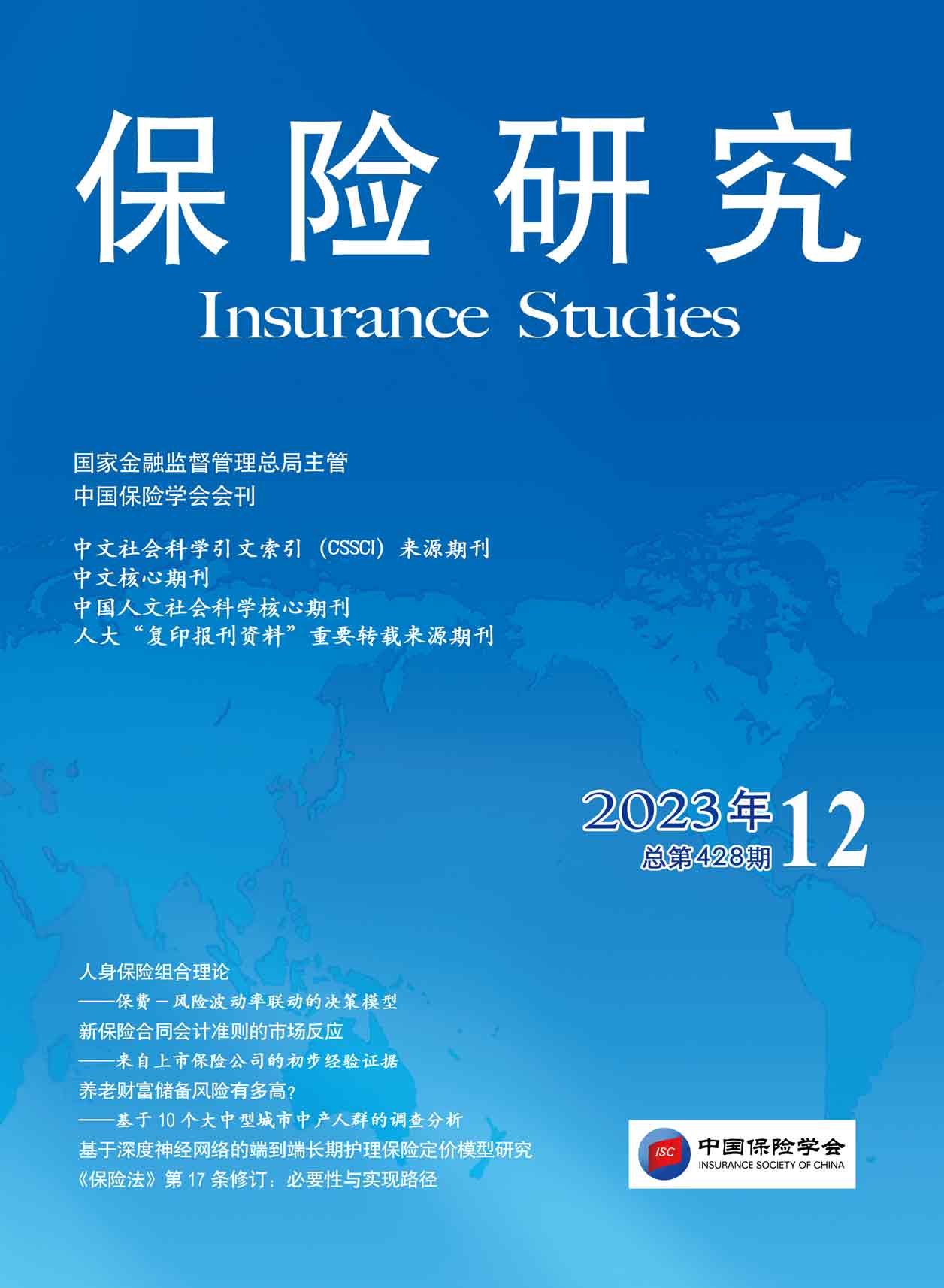
《保险研究》20231204-《养老财富储备风险有多高?——基于10个大中型城市中产人群的调查分析》(冯扬、房连泉)
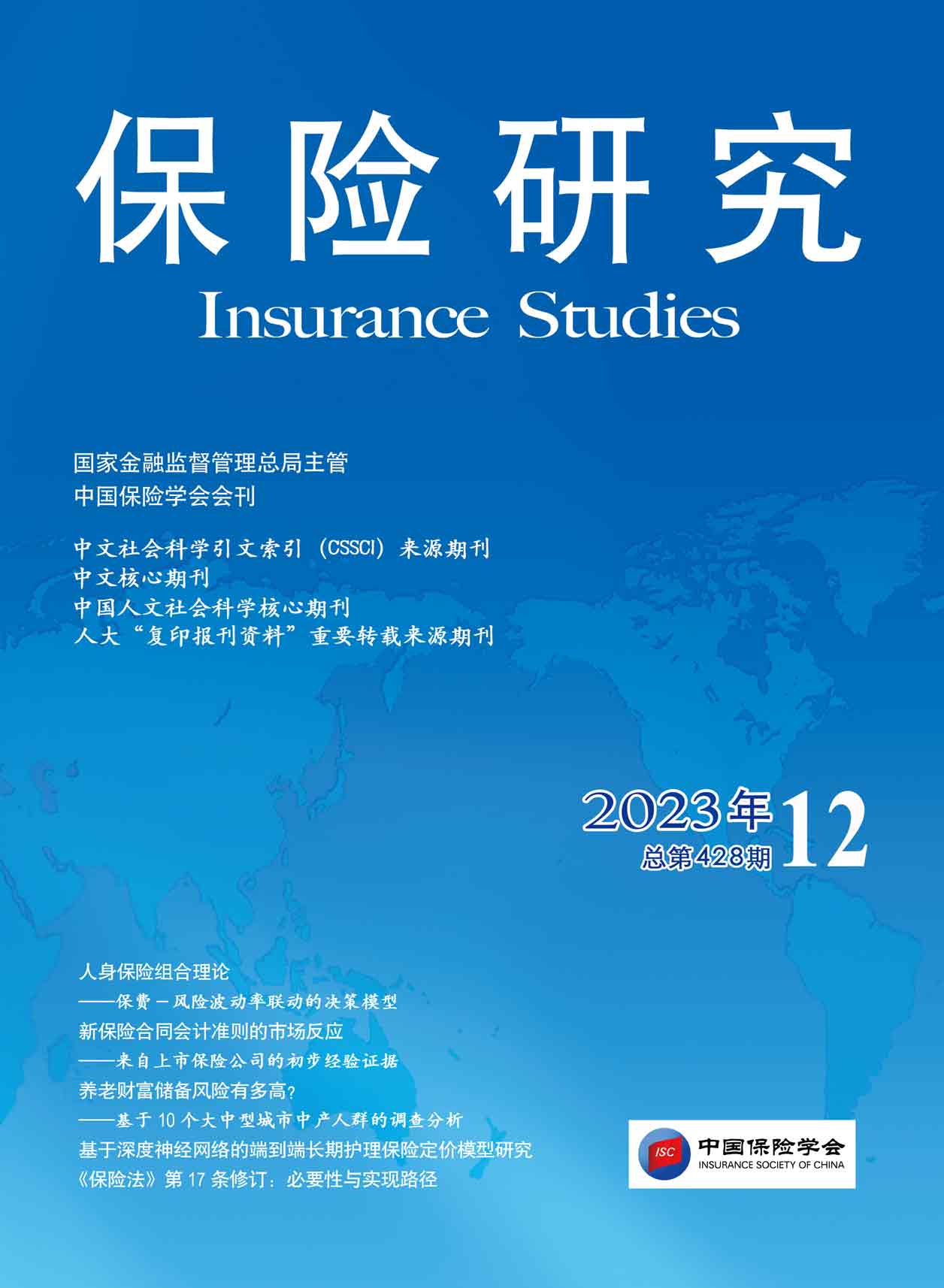
《保险研究》20231205-《社保基金持股对企业ESG改善的实证分析》(杜秋萱、姜岩、侯德帅)

《保险研究》20231206-《基于深度神经网络的端到端长期护理保险定价模型研究》(仇春涓、刘守贤、 张楠)
